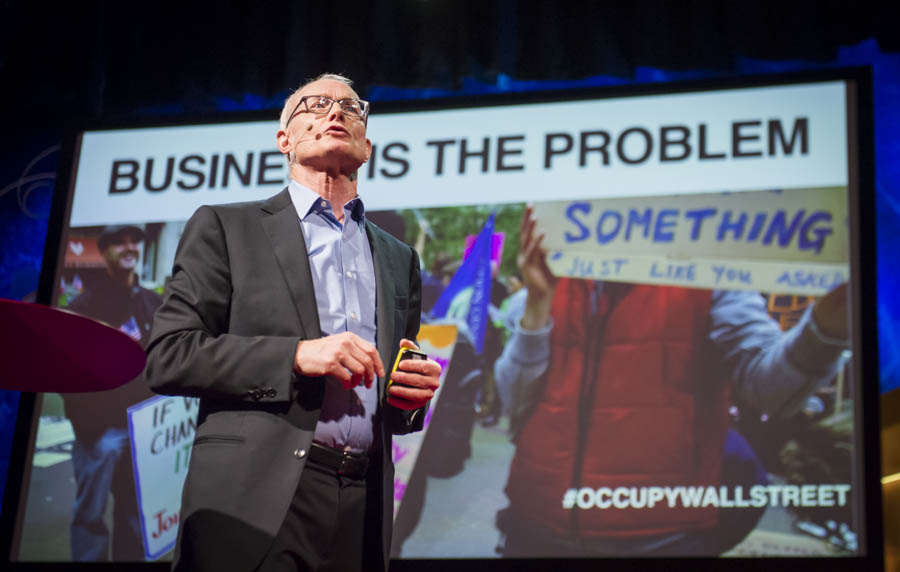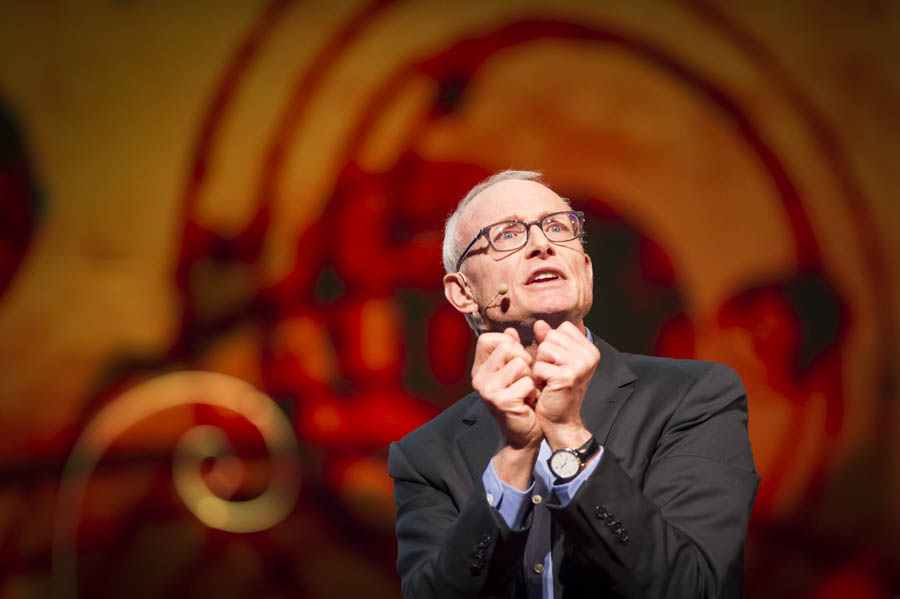Harvard Business School professor Michael Porter is here to make the case that business can help tackle social problems. Issues such as healthcare, access to water and climate change are bread-and-butter concerns for TEDsters in the room, who clearly agree with his early statement that we’re all very aware that these problems exist. Many of them also clearly agree with his analysis that business is often seen as the problem, not the answer.
Here’s the problem with the problem. The systems that we’ve developed to deal with social issues, including NGOs and philanthropies, are well-meaning and motivated, but they’re not designed to scale. “The awkward reality is that we’re not making fast enough progress. We’re not winning,” says Porter. “These problems seem very daunting and intractable. Any solutions we’re achieving are small solutions, incremental progress.”
The issue: the current model doesn’t have nearly enough resources to finance the necessary change. We need to confront this issue head-on. “How do we create resources?” asks Porter. His answer: via business, which creates wealth when it meets its own needs and makes a profit. That’s a simple equation that leads to taxes, incomes, charitable donations and so on. “Only business can create resources,” he says. “So the question then is, how do we tap into that?” He shows a slide showing the split of revenue within the United States: Corporations dominate. “Profit is the magic. You might say ‘ugh’ to that,” he says, (Indeed, many of the audience members do just that.) “But that profit allows whatever solution we have created to be infinitely scalable.”
Through his work as a strategy professor and advisor to global multinational corporations, as well as the founder of various nonprofits, Porter has come to see a shift in business processes in recent years, away from seeing social problems as a side project and toward treating them as central to the core business model. This subverts the conventional wisdom that either social performance or economic performance could thrive, but not both. Where issues like environmental sensitivity once seemed like unnecessary frippery or a marketing “nice to have,” now they’re seen as solutions to solve — and drive profits.
“Issue by issue, we have started to learn there is no tradeoff between social progress and economic efficiency in any fundamental sense,” Porter says. Good business and good social practices are not fundamentally opposed. And companies are catching on. He has some examples: Dow Chemical is developing healthier oils that replace transfat or saturated fat products. Jain Irrigation has brought drip irrigation to farmers–and reduced the need for excessive water usage. The Brazilian company Fibria has planted eucalyptus to harvest for paper, protecting old-growth forests. Cisco has trained four million people, not to “be responsible” but to disseminate IT technology and grow its own business. “There is a fundamental opportunity for business today to impact and address these social problems,” Porter says. “This is the largest business opportunity we see.”
He’s dubbed it “shared value” (indeed, it’s the topic of a feature article he wrote for the Harvard Business Review) and he calls it “a higher kind of capitalism.” More and more companies are embracing the philosophy, and more will do so in the future. The key now, Poster says, is to support deeper collaboration between NGOs, governments and businesses, to have all entities pull together in the same direction in the name of progress. “NGOs that are really moving the needle have found partnerships and ways to collaborate,” he says. “Governments that are making progress are enabling shared value in business rather than seeing government as the only player.” Rethinking kneejerk antipathy towards business and fostering collaboration and competition might just provide the scale necessary to solve some seemingly unsolvable problems.


Comments (9)
Pingback: Agriculture Aage Badh Raha Hai: Social Enterprises Revitalizing the Agricultural Sector – Economists in Transition
Pingback: Nestlé’s Foward Thinking Approach | Adinda Alita's Blog
Pingback: Why “Shared Value” is a light shining on the future of development | The Partnership Path to International Development
Pingback: In case you missed it: Some highlights of day 4 of TEDGlobal 2013: Think Again | BizBox B2B Social Site